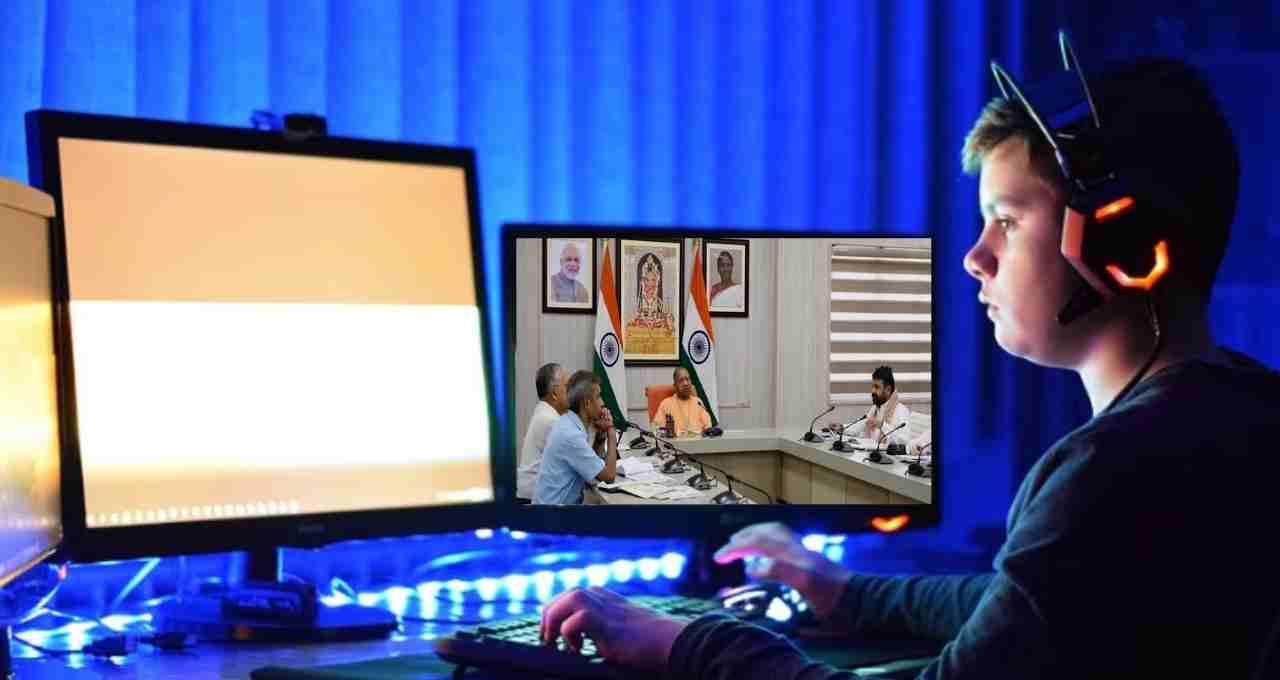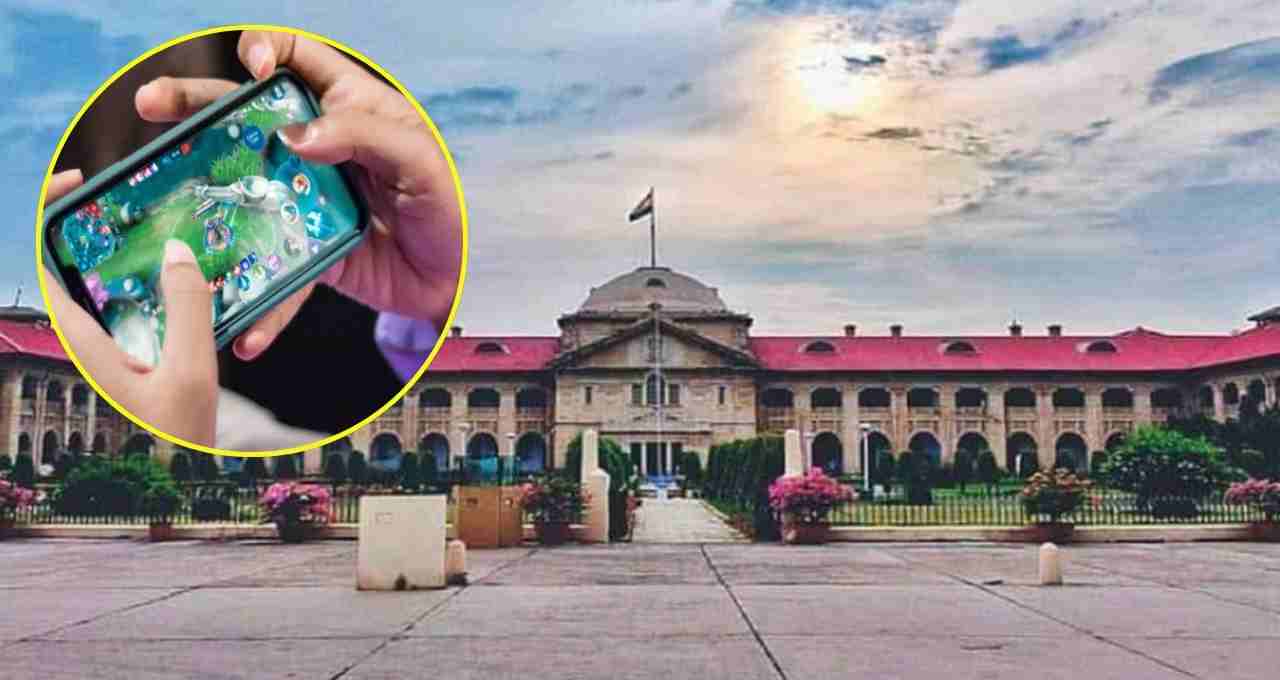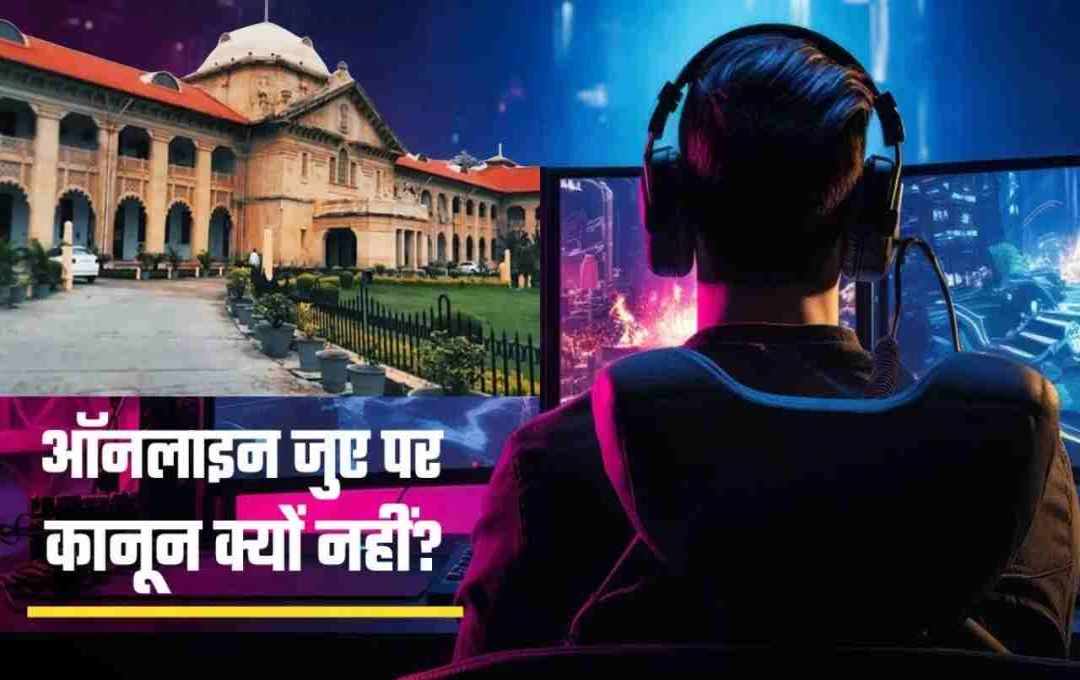The Allahabad High Court, in a significant ruling, expressed serious concern over online gaming and betting, recommending the central government enact new and effective legislation to curb it.
Prayagraj: In a landmark judgment with significant social implications, the Allahabad High Court suggested that the central and state governments formulate robust and modern laws to prohibit online gaming and virtual betting. The court stated that the Public Gambling Act of 1867 is irrelevant in today's digital age and does not reflect current realities.
Court's Observations: Laws Must Adapt to Changing Times
The single-judge bench of Justice Vinod Diwakar made this observation while hearing a petition filed by Imran Khan and others from Agra. FIRs had been registered against the petitioners under the Public Gambling Act, 1867. They challenged the summons issued by the lower court, seeking the quashing of criminal proceedings.
The court found that no effective and clear law exists in the country to address the current state of online betting and gaming. The court clarified that today, online gaming and betting are operated from international servers, extending beyond the jurisdiction of not only Indian states but also the nation's borders.
Guidelines for the Government

The High Court directed the Uttar Pradesh government to constitute a high-level committee to analyze the current scenario of online gaming and betting and formulate an effective legislative framework. This committee will be chaired by the state's economic advisor, Prof. K.V. Raju, and will include the Principal Secretary (State Tax) and various technical and legal experts.
This committee will investigate the dangers arising from gambling and gaming on digital platforms and suggest immediate legal remedies.
Adverse Impact on Youth
The court specifically noted in its judgment that today's youth are falling prey to online gaming and betting. This not only leads to financial losses but also serious problems such as mental stress, depression, insomnia, and social isolation. The court stated that the legal status of digital platforms such as fantasy sports, poker, online casinos, betting apps, and esports remains unclear, making it difficult to control crimes.
Obsolete Law Becomes Irrelevant
The Public Gambling Act of 1867 was suitable for a time when gambling was limited to physical gambling houses. This law prescribes a mere fine of ₹2000 and a maximum sentence of one year. However, today, digital betting involves crores of rupees, causing revenue loss to the government and socio-economic damage to citizens.
International Examples Cited

The court also stated that many developed countries have already enacted stringent laws to address this problem. For example:
- The UK implemented the Gambling Act in 2005, which includes licensing, advertising controls, and measures to prevent money laundering.
- Australia regulated online betting in 2001.
- States like New Jersey and Pennsylvania in the US have legalized and regulated online casinos.
- Singapore and South Korea have also established legal frameworks for online betting.
Court's Clear Message: Concrete Action Needed Now
The court noted that the NITI Aayog of the Indian government also issued a policy paper in 2020 highlighting the need for legislation on online gaming, but the matter remains in a 'grey area'. The court directed that a copy of the order be sent to the Chief Secretary of Uttar Pradesh to expedite the formation of the committee and the enactment of appropriate laws on this serious issue.










